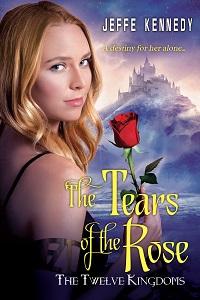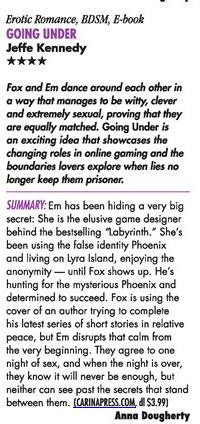
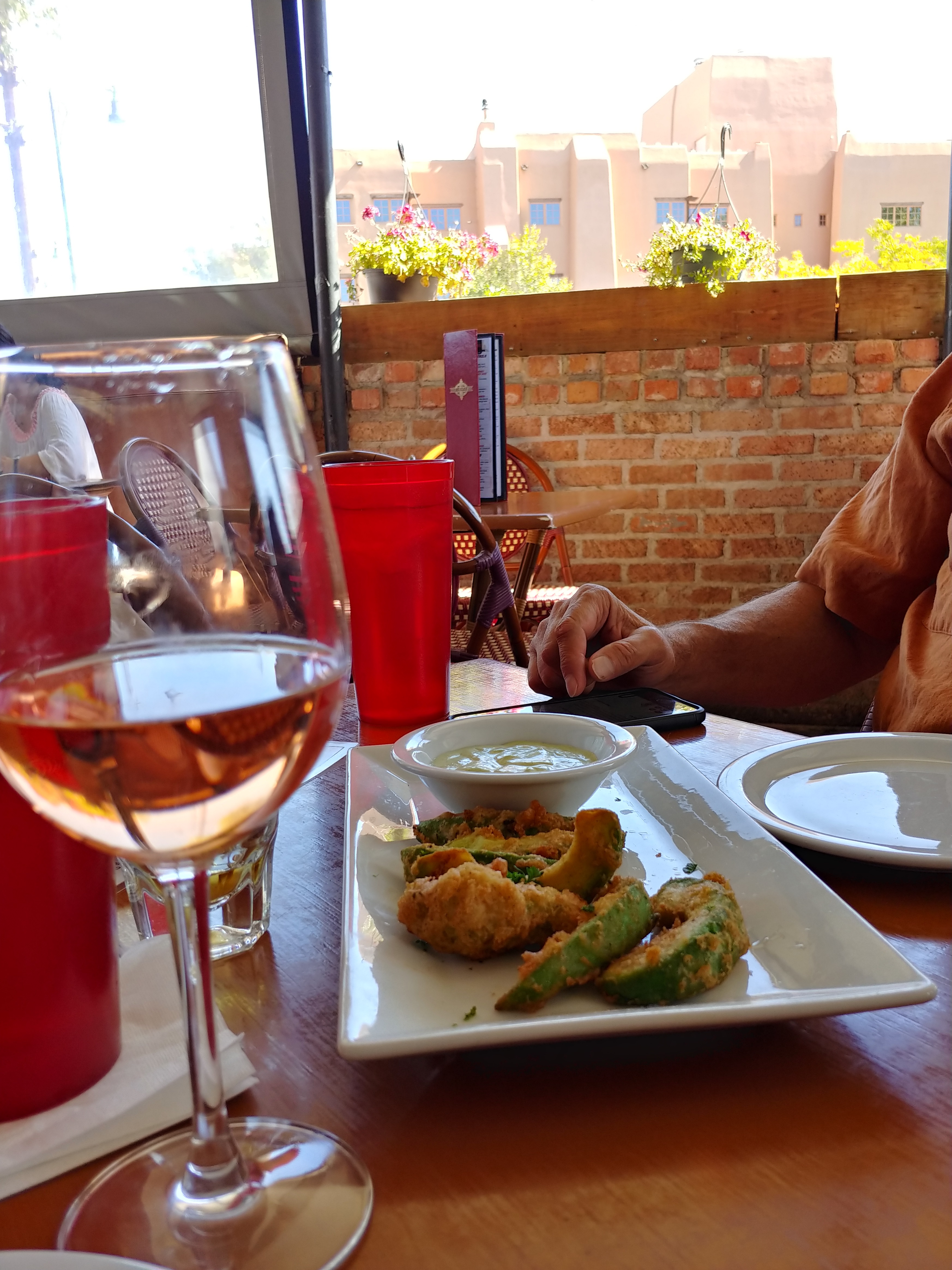
RITA ® Award-Winning Author of Fantasy Romance




I talked a bit about this on Twitter, and on my podcast – First Cup of Coffee – but I said I’d loop back and discuss on the blog in more detail.
I admit it started with a subtweet. A few blogger/reviewers were posting about authors who were publicly shaming readers who gave them poor reviews. The tenor of the authors’ complaints were that the bad reviews were harshing their (or their friend’s) release day buzz. Which… that’s a whole other thing, but the TL:DR is that nobody owes an author a sparkle pony on release day. The operative word there is RELEASE. That means letting the book go, to sink or swim in the world. It no longer belongs to the author. Helicopter parenting it will only bring misery to the author and damage the book’s chances.
ANYWAY. This post isn’t about that.
What I subtweeted about was an author who weighed in on the thread with a “but, but, but” – #protip: don’t do this – “But, but, but,” she says, “I just wish readers would *explain* why they give it one-star, so I can learn from it!”
First of all, not only does nobody owe you a sparkle pony, no one owes an explanation for a rating. Readers can rate books whatever they like, for whatever reason they like, and they don’t have to explain. They’re not in a relationship with the author, so there’s no obligation to tend feelings. They’re not writing teachers. They read.
Secondly, reviews are not for the author to read. Even readers and reviewers who take the conceit of appearing to address the author, aren’t really. They’re engaging with the voice in the book. It’s really important for writers to remember we are not our books. One of the very interesting outcomes of the Burnout Panel (and How to Maybe Avoid It Next Time) at Nebula Conference was that one of the key conditions leading to burnout is a person over-identifying with their work. A book is something we create (and RELEASE) and how readers react to it is about *them*. When someone reviews a book, it’s for other readers. It’s not a job performance appraisal for the author.
Finally, reviews are a TERRIBLE place to look to improve craft because the lens is so different. The experience of reading a book is totally different from evaluating it with an editorial eye. As proof of this, I point to the near-universal author experience of discovering that reading for sheer pleasure gets lost. Somewhere in the transition from being a person who only reads books to someone who also writes them, we develop that critical lens for evaluating the story creation. And it becomes almost impossible to shut it off again. This is bad and good. There’s some grief in the realization that the experience of reading a story without examining it is lost forever. But it’s good because, well, we *need* that ability. Every book and story a writer reads is an education – what works for us, what doesn’t, how the writer created certain impacts, where they lost the thread, etc.
Because of this profound difference in reading experience, however, reviews from readers tell us nothing about the craft of the story. Maybe a writer can glean some insight from which stories seem most popular – but most writers also will note that they can never predict which stories will “hit” and which don’t. It’s almost never our personal favorites. It often seems counter-intuitive. Many writers will say that their very favorite of their own work is the least popular with readers. Is there a correlation?
WHO KNOWS???
That’s the thing, and that’s my point. There is no knowing, which means that scouring reviews for information on improving craft is fruitless.
You know what does work? Read a lot (books and stories, not reviews). Write a lot.
Read. Write. Repeat.
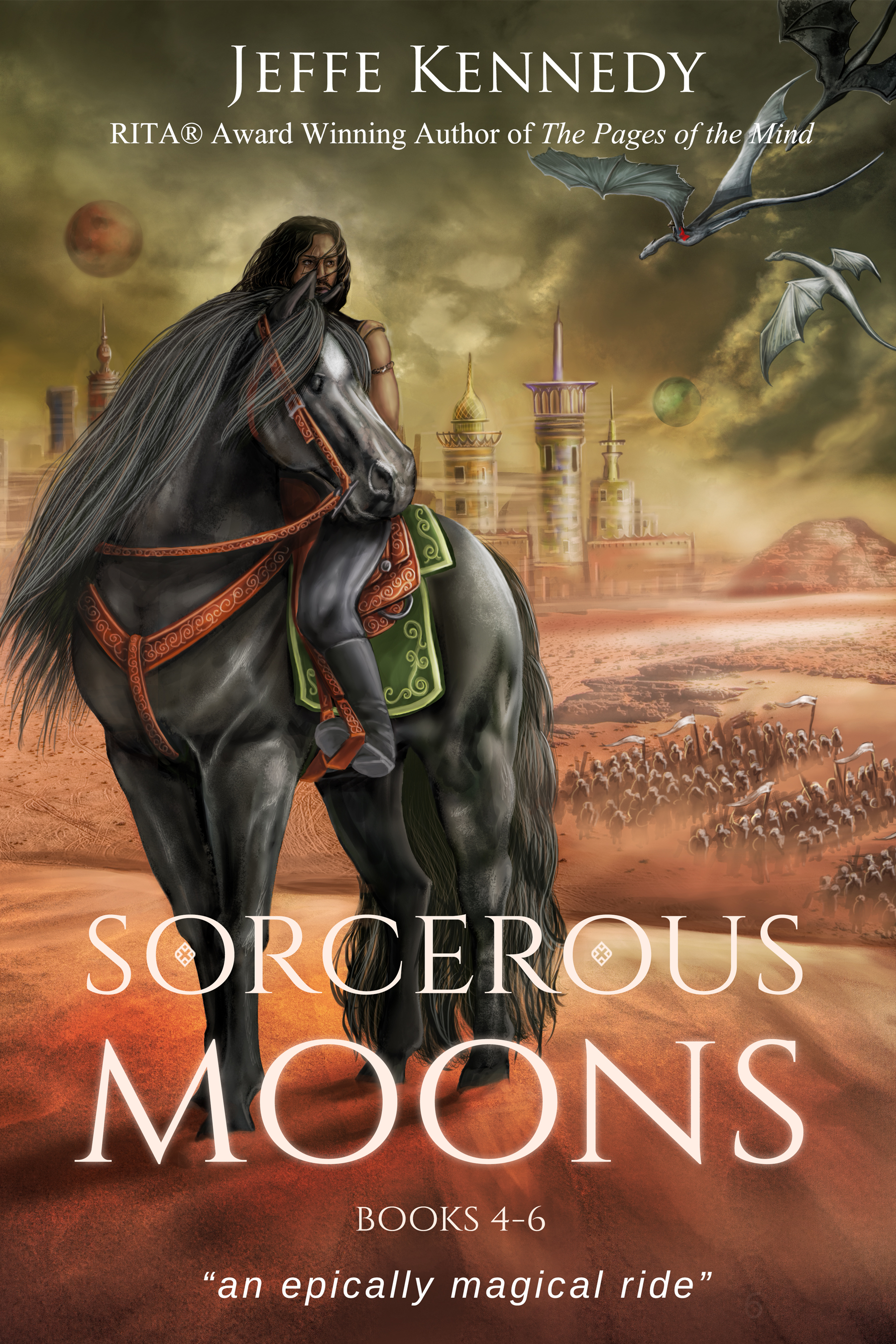
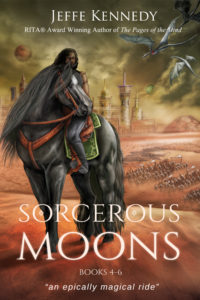
If you’ve been waiting for the second Sorcerous Moons compendium, books 4-6, it’s out! Also talking about reviews and why authors shouldn’t try to improve craft by reading them. And updates on my broken contact lens.


Our topic at the SFF Seven this week is reviews: do they really do any good?
Serendipitously enough, this topic dovetails with something I’d already noted on my list of Things to Discuss, which is author branding and the long game. I’d been thinking about it since I was interviewed last week on the Science Fiction and Fantasy Marketing Podcast. Since it aired, I’ve received a lot of great feedback and appreciation for my “down-to-earth” marketing strategy and advice.
I found that description kind of amusing – because I don’t think of myself as “down to earth” in general – but I also get why they say that. I think it’s partly because a lot of my marketing strategy is grounded in author branding and the long game.
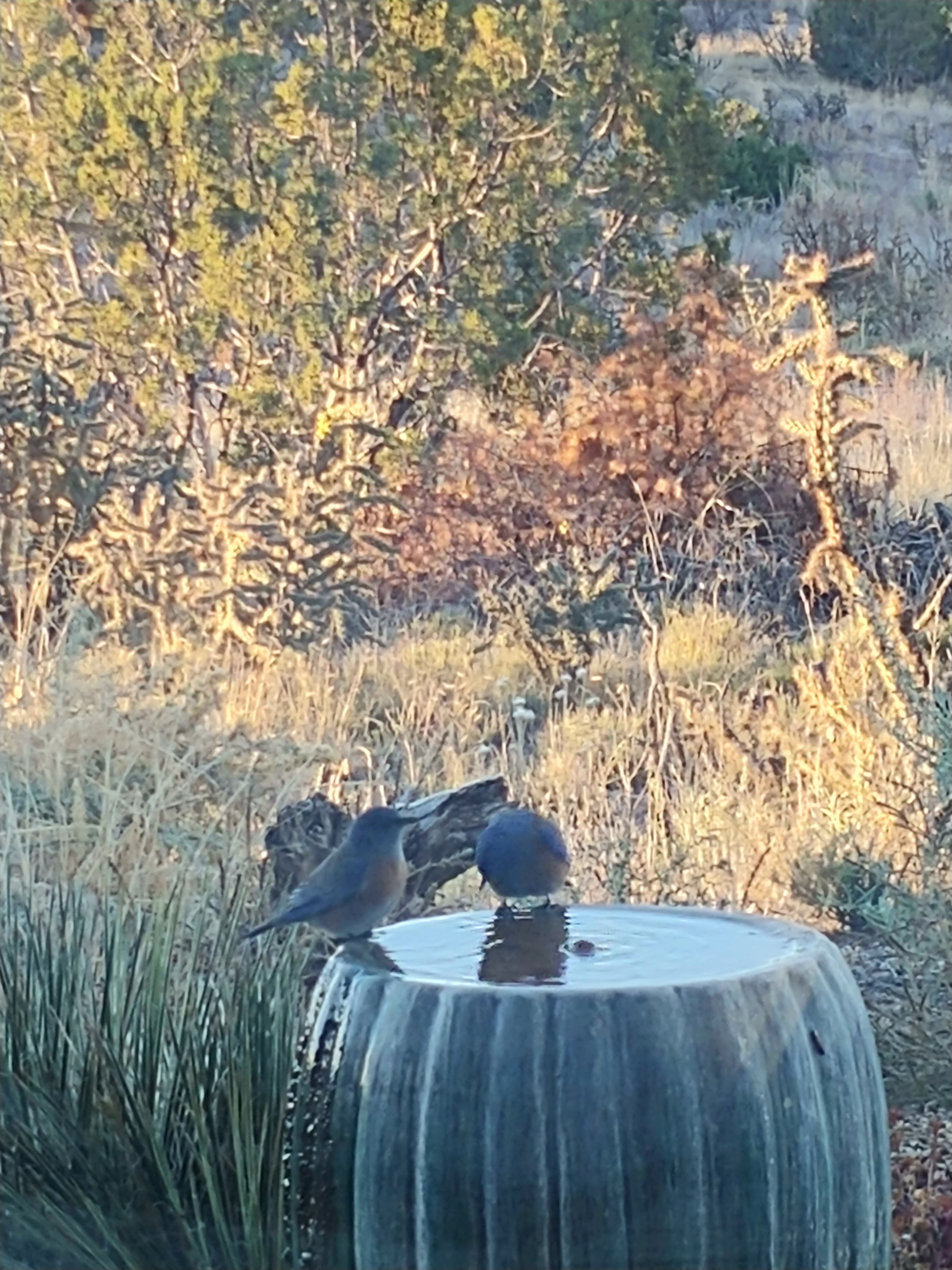

This was my view from the bed this morning when I woke up. The mountain bluebirds love this water fountain – and they always feel like a good luck visitation to me!
Our topic at the SFF Seven this week is “Dealing with an almost willful misinterpretation of the text.” Come on over for my take.
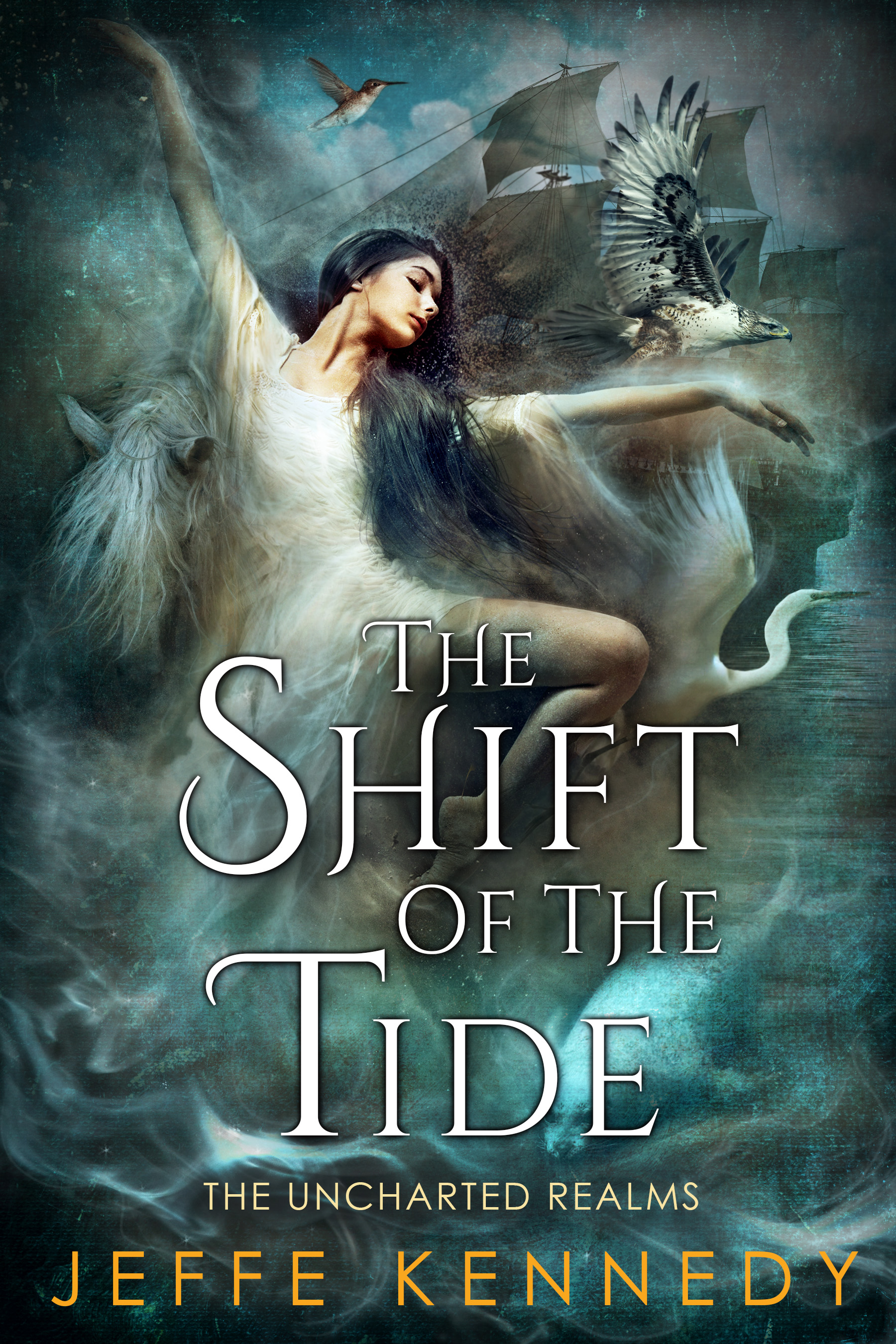
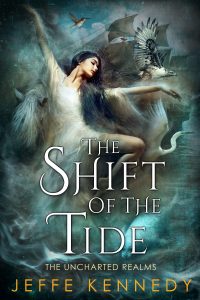
Our topic this week at the SFF Seven is on our calendar as “Reviews – I’m rubber, you’re glue.”
Which gave me pause, I’ll admit. The phrase comes from US playground taunts among children (do other countries have this one?) where the teased child will reply “I’m rubber, you’re glue. What bounces off me, sticks to you.” In other words saying that any insults hurled at us bounce off and stick to the the one flinging them. Come on over for my take.
This is one of my favorite photos from the RT Booklovers Convention in Las Vegas last week. Darynda Jones and I were on a panel and I think we were laughing here about people dissing fantasy heroines as unrealistic while loving Conan.
Hard to say, but it makes me smile every time.
I’m over at Word Whores today (name soon to change!) talking about reviews, especially vicious ones.
 A rare sight of Elephant Butte with snow, from the Christmas storm in New Mexico. We caught this on the drive home from Tucson, and now that I’ve turned in THE EDGE OF THE BLADE, I’m digging photos out of my camera and sharing. Yay!
A rare sight of Elephant Butte with snow, from the Christmas storm in New Mexico. We caught this on the drive home from Tucson, and now that I’ve turned in THE EDGE OF THE BLADE, I’m digging photos out of my camera and sharing. Yay!
The last few days, I’ve been in a range of conversations with writers at various stages of their careers.
One friend is not yet published. She had been discouraged by a string of rejections and has resolved to take her series out via self-publishing this year. (It’s a contemporary romance series that I think is excellent and will be excited to tell you all about when she’s ready.) We’ll also strategize another series for her to query with traditional publishing. For her, everything is about cracking that first barrier – getting her first book out there.
On one of my author loops, several extensively published authors bemoaned not being able to get book reviews. One commented that her latest self-published release got zero reviews. On another loop, more published authors complained of the same, asking for tips on getting more reviews.
Meanwhile another author friend yesterday celebrated the one-year anniversary of the publication of her book – and that it just hit 1,000 reviews on Amazon.
Me? I fall somewhere in the middle of all of this. I get a substantial number of reviews, from wonderful, enthusiastic readers – but I got nothing like 1,000.
So, what did we learn today, boys and girls?
There’s a saying that hearkens back to the fourteenth century, credited to John Fortesque, that’s been repeated by many, such as Lydgate, Shakespeare and Swift.
Comparisons are odious.
And no, that has nothing to do with odor. The word “odious” comes from the Latin odium for hatred. Something that is odious is hateful, disgusting or offensive.
In other words… DON’T DO IT.
Don’t make comparisons, people. And I’m speaking to myself, too, because when my darling friend announced hitting 1,000 Amazon reviews, the first thing I did was go look at my comparable book. How many? 54 Amazon reviews.
But hey, it’s better than zero reviews.
And it’s better than not having a book published yet.
Actually… it is what it is, right? Comparisons are odious because they’re meaningless. I reminded myself of that, shrugged it off, and closed the Amazon page.
We all do what we can do.
